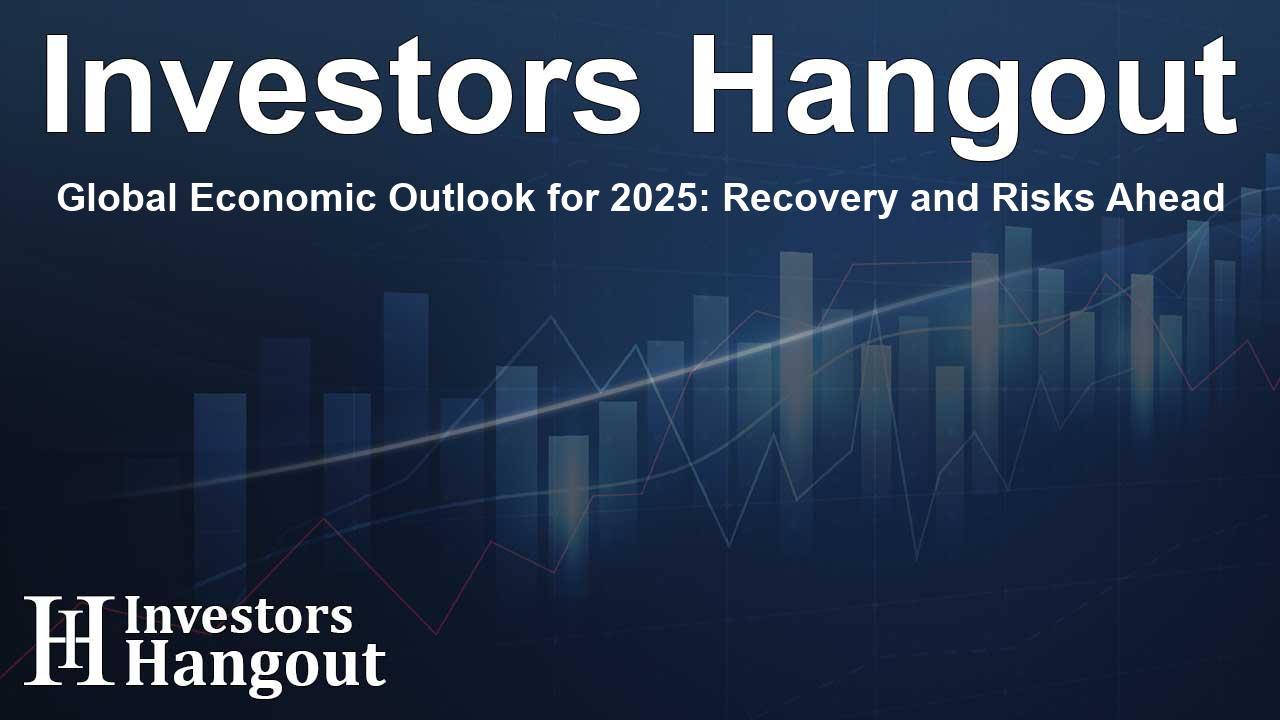Global Economic Outlook for 2025: Recovery and Risks Ahead

Global Economic Recovery Insights for 2025
As we look ahead to 2025, analysts at Capital Economics have shared their perspective on the global economy. They anticipate a modest recovery for many major economies, following a challenging period that marked the latter half of 2024.
Key Forces Shaping Advanced Economies
The analysis points to two critical aspects influencing developed economies: the normalization of inflation rates and the easing of monetary policies. These factors are expected to create a supportive environment for GDP growth.
China's Economic Rebound
China's growth is anticipated to ramp up, thanks in part to impending fiscal stimulus measures. However, it’s essential to note that ongoing trade tensions with the U.S. and certain allies could present challenges that might restrict the nation’s growth trajectory.
Risks on the Horizon
Despite the optimism, several risks linger that could impact the economic landscape. Capital Economics highlights the persistent nature of inflation, particularly in Europe, which could dampen real income growth and limit the opportunities for further policy easing.
Political Transitions and Isolationism
Political changes across various nations introduce additional uncertainties. Issues arising from debt-funded stimulus programs and potential market reactions could contribute to financial instability. Moreover, rising isolationist trade policies and stronger opposition to immigration are concerning trends that may lead to stagflationary effects in advanced markets.
Indicators of Potential Recession
While some analysts express concerns about the possibility of a recession in 2025, Capital Economics urges a cautious approach. They identify warning signs, such as declining manufacturing surveys, increasing unemployment levels, and growing loan delinquencies. However, these indicators do not definitively point to a recession.
A Positive Outlook Amid Challenges
Despite the unsettling signs, trends in areas like credit, employment, retail sales, and construction suggest a more positive overall picture. Capital Economics believes that while vigilance is necessary, a soft landing for the economy remains the most probable scenario for 2025, provided that emerging risks are monitored closely.
Frequently Asked Questions
What are the main themes affecting the global economy in 2025?
Key themes include the normalization of inflation and adjustments in monetary policy, which are likely to support GDP growth.
How is China's economy expected to perform in 2025?
China's recovery is anticipated to strengthen due to fiscal stimulus, although trade tensions may impede its growth.
What risks might affect the global economy in 2025?
Risks include persistent inflation, political changes, isolationist trade policies, and uncertainties around debt-funded stimulus.
Is a recession likely in 2025?
While some indicators suggest a potential downturn, Capital Economics believes a recession is not guaranteed.
What indicators suggest a positive economic outlook?
Positive trends in credit, employment, and retail sales portray a broadly optimistic economic scenario for the upcoming year.
About Investors Hangout
Investors Hangout is a leading online stock forum for financial discussion and learning, offering a wide range of free tools and resources. It draws in traders of all levels, who exchange market knowledge, investigate trading tactics, and keep an eye on industry developments in real time. Featuring financial articles, stock message boards, quotes, charts, company profiles, and live news updates. Through cooperative learning and a wealth of informational resources, it helps users from novices creating their first portfolios to experts honing their techniques. Join Investors Hangout today: https://investorshangout.com/
Disclaimer: The content of this article is solely for general informational purposes only; it does not represent legal, financial, or investment advice. Investors Hangout does not offer financial advice; the author is not a licensed financial advisor. Consult a qualified advisor before making any financial or investment decisions based on this article. The author's interpretation of publicly available data shapes the opinions presented here; as a result, they should not be taken as advice to purchase, sell, or hold any securities mentioned or any other investments. The author does not guarantee the accuracy, completeness, or timeliness of any material, providing it "as is." Information and market conditions may change; past performance is not indicative of future outcomes. If any of the material offered here is inaccurate, please contact us for corrections.